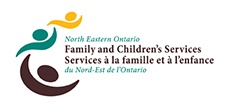PUTTING YOUR FAMILY’S MENTAL WELLNESS FIRST
SIX TIPS TO PRACTISE SELF-CARE DURING RAMADAN
For the next month, many Muslim families around the world will be observing the holy month of Ramadan. Ramadan is practised through a month of fasting, prayer, reflection and giving back to the community. Sadly, for many families this will be their second year observing this month in a pandemic. This will mean missing out on gatherings at the mosque for Taraweeh (evening prayers), community Iftars (breaking of the fast) and Eid celebrations. To help support the Muslim families in our community during this time, Children’s Mental Health Ontario (CMHO), with support from The New Mentality, have pulled together a list of tips and ideas to support your family’s mental wellbeing over the next month.
We are sharing these tips to help you through, but if you are a parent or a caregiver and feel that your child needs more mental health support, reach out for help by contacting us 24/7 at 705-360-7100 or toll-free at 1-800-665-7743 in the Cochrane District or 1-866-229-5437 in the Timiskaming District.
-
PRIORITIZE MENTAL HEALTH.
At times, the month of Ramadan can perhaps feel challenging, while also feeling incredibly rewarding as you adapt to earlier mornings, changes in daily routines and fasting. Focus on ways you can prioritize your and your child’s mental wellness during this time and self-care activities that work best for your family.
-
CONNECT WITH YOUR LOCAL MOSQUE.
Many Mosques are finding safe ways to keep connected and support their community during this month. Connecting with your local mosque might spark ideas for you and your family about how to feel closer to community during this time. Many Mosques around the world will be hosting virtual Iftars and Taraweehs for communities to join in on from across the globe!
-
FIND NEW WAYS TO CONNECT WITH FRIENDS AND FAMILY.
Gathering with friends and family is a special and important part of Ramadan for many and it is natural to experience feelings of sadness or grief over not being able to gather this year. Collaborate with close friends and family on different ways you can safely connect this year through Zoom or FaceTime calls, to still feel close to loved ones during this time.
-
MANAGE DISAPPOINTMENT.
For a lot of families, accepting that Ramadan might not be the same this year is disappointing. Feelings of grief, sadness and frustration might be experienced. It’s important to acknowledge that disappointment and those feelings, especially for children.
-
COMMUNICATE OPENLY.
For many parents and older kids and teens, the month of Ramadan can bring changes to your daily schedules and routines. As it feels comfortable, communicate your needs with those around you. For some that might be moving your lunch hour to accommodate for time for prayer, for others that might be starting your workday a bit earlier or later. Communicate what feels best for your and your family’s needs.
-
LISTEN TO YOUR BODY.
Fasting can also bring about changes to your energy levels and for some that might mean needing to take more moments of rest. Others might want and enjoy getting active and getting outdoors (safely). Take a few moments in your and your family’s day to check-in on what you need. These moments can be great acts of self-care.
Find Help
Children’s Mental Health Ontario has 4,000 child and youth mental healthcare workers across Ontario ready to help parents and their children. Depending on your needs, we can connect you to child mental health professionals that will most help you and your family, including psychiatrists, therapists, and psychologists. You can also request a Muslim therapist, or support or services in your language of preference. Visit cmho.org/findhelp.
